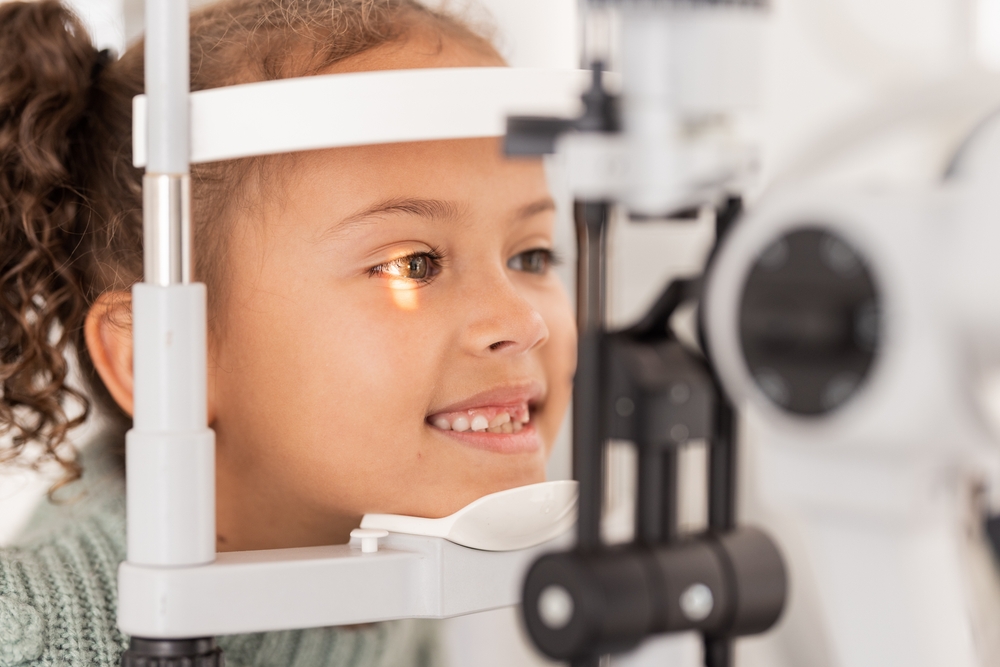
Your child's vision is crucial for their overall development and well-being. Good eyesight not only helps them navigate the world around them but also plays a vital role in their learning, social interactions, and physical activities. However, many parents overlook the importance of regular eye exams for their children, assuming that vision problems are rare or easily detectable.
In reality, vision issues can arise at any age, and early detection is key to preventing long-term complications. By prioritizing your child's eye health, you can ensure they have the best possible start in life. Regular pediatric eye exams can identify potential problems early on, allowing for timely intervention and treatment.
Signs That Your Child May Need an Eye Exam
While some vision problems may be obvious, such as squinting or frequent headaches, others can be more subtle. It's important to be aware of the following signs that may indicate the need for an eye exam:
• Frequent eye rubbing or blinking
• Complaints of blurred or double vision
• Tilting the head or covering one eye to see better
• Difficulty concentrating or paying attention
• Poor hand-eye coordination or clumsiness
• Avoiding reading or close-up work
• Sitting too close to the television or holding devices too close to the face
If you notice any of these behaviors in your child, it's best to schedule an appointment with an eye care professional as soon as possible.
Common Eye Conditions in Children
Children can develop a variety of eye conditions, some of which may require early intervention to prevent long-term consequences. Some of the most common eye problems in children include:
• Refractive Errors: This includes nearsightedness (myopia), farsightedness (hyperopia), and astigmatism, which can all be corrected with prescription glasses or contact lenses.
• Amblyopia (Lazy Eye): This condition occurs when one eye develops poorer vision than the other, often due to a refractive error or strabismus (misaligned eyes).
• Strabismus: Also known as "crossed eyes" or "wandering eye," this condition is characterized by the misalignment of the eyes, which can lead to amblyopia if left untreated.
• Color Vision Deficiencies: Some children may have difficulty distinguishing certain colors, a condition known as color blindness.
• Eye Injuries and Infections: Children are more prone to eye injuries, such as scratches or foreign objects in the eye, as well as infections like conjunctivitis (pink eye).
Early detection and treatment of these conditions can help prevent or minimize the impact on your child's vision and development.
Why Regular Pediatric Eye Exams Are Crucial
Regular eye exams are essential for the early detection and treatment of vision problems in children. By identifying issues early on, optometrists can provide the necessary interventions to help your child develop and thrive.
Pediatric eye exams not only assess your child's visual acuity but also evaluate the overall health of their eyes. These comprehensive examinations can detect a wide range of conditions, including refractive errors, eye alignment issues, and even underlying medical conditions that may affect vision.
Early intervention can make a significant difference in a child's development. With the right treatment, many vision problems can be corrected or managed, allowing your child to reach their full potential both in and out of the classroom.
When Should Children Start Getting Eye Exams?
The American Optometric Association recommends that children have their first comprehensive eye exam at 6 months of age, followed by additional exams at the following milestones:
· 3 years old
· Before entering kindergarten (around 5-6 years old)
These recommended eye exams are crucial for monitoring your child's visual development and ensuring any issues are addressed promptly.
How Often Should Kids Have Their Eyes Examined?
Once your child reaches school age, it's generally recommended that they have a comprehensive eye exam at least once a year. This frequency allows eye doctors to closely monitor your child's vision and identify any changes or emerging problems.
Annual eye exams are particularly important during the school years, as children's visual demands increase with more time spent on schoolwork, reading, and using digital devices. Regular check-ups can help ensure that your child's eyes are keeping up with these growing demands and that any vision problems are detected and treated early.
It's important to note that some children may require more frequent eye exams, depending on their individual needs and any existing vision conditions. Your eye doctor can provide guidance on the appropriate exam schedule for your child.
Schedule Your Child’s Eye Exam with Jeffrey H. Brown Optometry Today
Your child's vision is a precious asset that deserves your attention and care. By making regular pediatric eye exams a priority, you can help ensure your child's eyes are healthy and their vision is developing as it should. With the right care and support, you can help your child reach their full potential and enjoy the world around them to the fullest.
To schedule your child's comprehensive eye exam, contact Jeffrey H. Brown Optometry. We are dedicated to providing exceptional care and ensuring your child's vision is at its best. Visit our office in Costa Mesa, California, or call (714) 710-8062 to book an appointment today.




